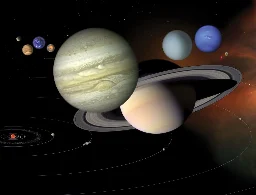Planets - NASA Science
Planets - NASA Science
Our solar system has eight planets, and five dwarf planets - all located in an outer spiral arm of the Milky Way galaxy called the Orion Arm.

Planets
The solar system has eight planets: Mercury, Venus, Earth, Mars, Jupiter, Saturn, Uranus, and Neptune. There are five officially recognized dwarf planets in our solar system: Ceres, Pluto, Haumea, Makemake, and Eris.
Inner Planets
The first four planets from the Sun are Mercury, Venus, Earth, and Mars. These inner planets also are known as terrestrial planets because they have solid surfaces.
Outer Planets
The giant planets in our outer solar system don't have hard surfaces and instead have swirling gases above a core. Jupiter and Saturn are gas giants. Uranus and Neptune are ice giants.
Dwarf Planets
Beyond Neptune, a newer class of smaller worlds called dwarf planets reign, including longtime favorite Pluto. The other dwarf planets are Ceres, Makemake, Haumea, and Eris. Ceres is the only dwarf planet in the inner solar system. It's located in the main asteroid belt between Mars and Jupiter.